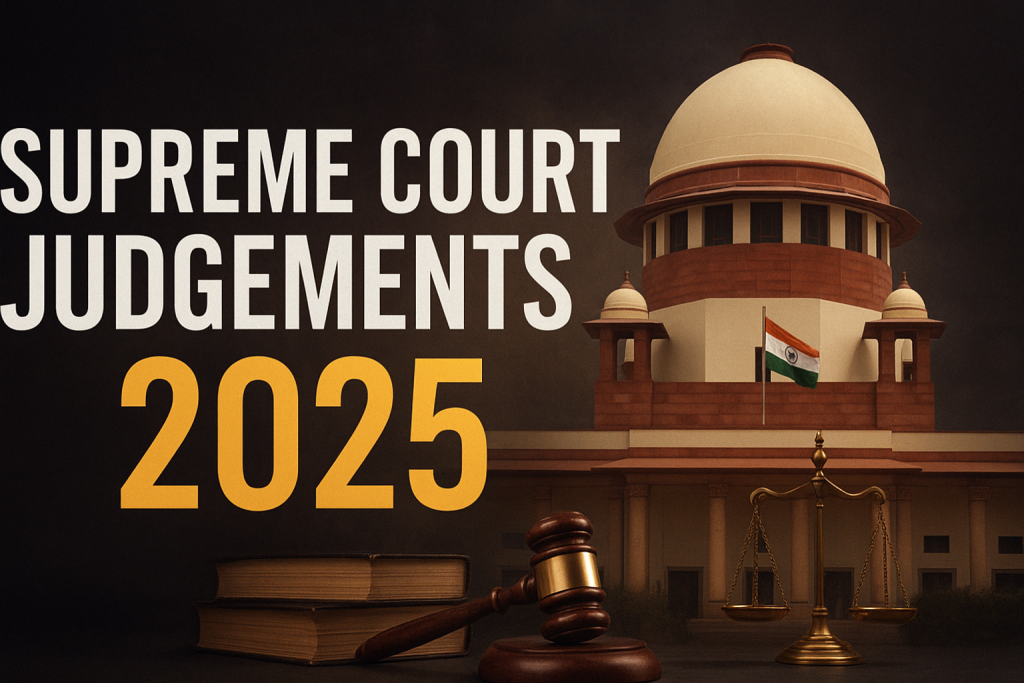Chunni Bai v. State of Chhattisgarh, 2025
- SC 497, AIR 2025 SC 2370
Accused Claimed To Be Under Influence Of Certain Invisible Force: Supreme Court Reduces Sentence Of Woman Accused Of Killing Daughters
Brief Facts: As per the prosecution’s case, in 2015, the Appellant-accused allegedly assaulted her two
daughters, aged 5 years and 3 years respectively, with an iron crowbar, leading to grievous injuries, thereby causing the death of both daughters. The incident was witnessed by the sister-in-law of
the accused, who also lived in the same house. Resultantly, a Complaint was lodged by the accused’s
neighbour, based on which an FIR was registered under Section 302 IPC. The Trial Court convicted
the Appellant for the offence punishable under Section 302 IPC and sentenced her to undergo
imprisonment for life along with a fine of Rs. 1,000/-. In the Appeal against such an Order, the High
Court concluded that the accused had assaulted her daughters with an iron pounder, causing
grievous injuries leading to their death. It dismissed the Appeal and hence, the accused approached
the Apex Court.
“It is generally accepted in every society, especially in Indian society, that one of the most sacred
relationships amongst all human relationships is that of a mother and child. A mother is the life-giver as
well as the nurturer of a child. Since time immemorial, we have not only been hearing but also observing
the essence of the lines “पूत कपूत सुने बहुतेरे, माता सुनी न कुमाता” which means that a son can be a bad
son, but a mother can never be a bad mother. Of course, it cannot be a legal dictum that mothers can
never be an offender but that in the present case, in complete absence of motive, a mother assaulting
her children of tender ages to death, that too when it is admitted that there was no animosity, but only
love for her children, is contrary to lived human experiences”, it also remarked.
Murder – Plea of Insanity – Absence of Motive – The Supreme Court reduced the
conviction of a mother, who killed her daughters (aged 3 and 5), for murder under Section
302 IPC to culpable homicide not amounting to murder under Section 304 Part II IPC,
imposing a maximum sentence of 10 years. The appellant’s claim of acting under an
“invisible influence,” coupled with her behavior—shouting during the act, crying afterward,
and not fleeing— suggested an impaired mental state, possibly temporary insanity.
Although the insanity defense under Section 84 IPC was not fully accepted due to
insufficient medical evidence, the absence of motive in such a grave offense supported the
plea, raising doubts about mens rea. Noting the appellant had served 9 years and 10
months, the Court ordered her release.
Trial courts were directed to proactively seek truth under Section 165 of the Evidence Act in
cases involving bizarre, inexplicable acts or claims of mental instability, especially when
temporary unsoundness of mind is suggested. Courts must consider that rural, less-
Educated individuals may not articulate mental disorders (e.g., schizophrenia, bipolar
disorder) precisely, and such pleas should not be dismissed summarily. Lack of motive and erratic behavior may cast reasonable doubt on intent, warranting careful evaluation to ensure justice in grave offenses.


